Managing Your Horse’s Weight: Strategies for Overweight and Underweight Horses
Managing your horse’s weight can be a challenge but these tips will ensure your horse maintains the right weight for them.
Managing your horse’s weight can be difficult. There are several factors such as diet, exercise, and health that can affect their weight.
I will explain strategies to manage your horse’s weight, whether they are overweight or underweight.
This post may contain affiliate links. Please read our disclosure policy.
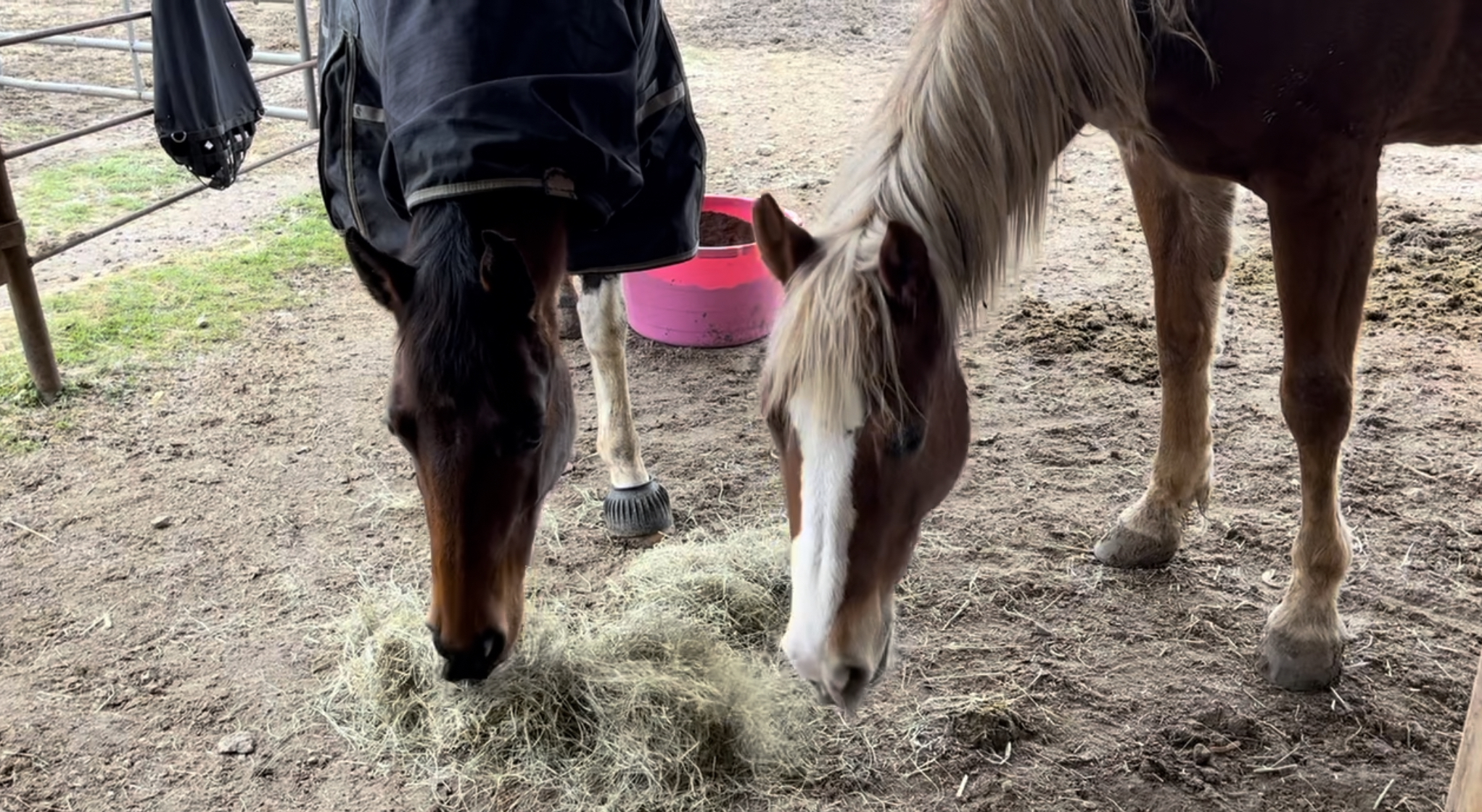
From adjusting their feed quantity and frequency to providing regular exercise, I’ll provide tips to help you create a personalized plan that works for your horse. Let’s dive in!
Body Condition Score
Assessing your horse’s Body Condition Score (BCS) is an essential step when managing their weight.
The BCS is used to evaluate the amount of body fat on a horse’s body. It ranges from 1 (underweight) to 9 (overweight). You want your horse to score around an ideal score of 5.
This will allow you to determine whether your horse is overweight, underweight, or at an ideal weight.
Regularly monitoring your horse’s BCS and making necessary adjustments can help maintain their optimal weight and ensure their overall well-being.
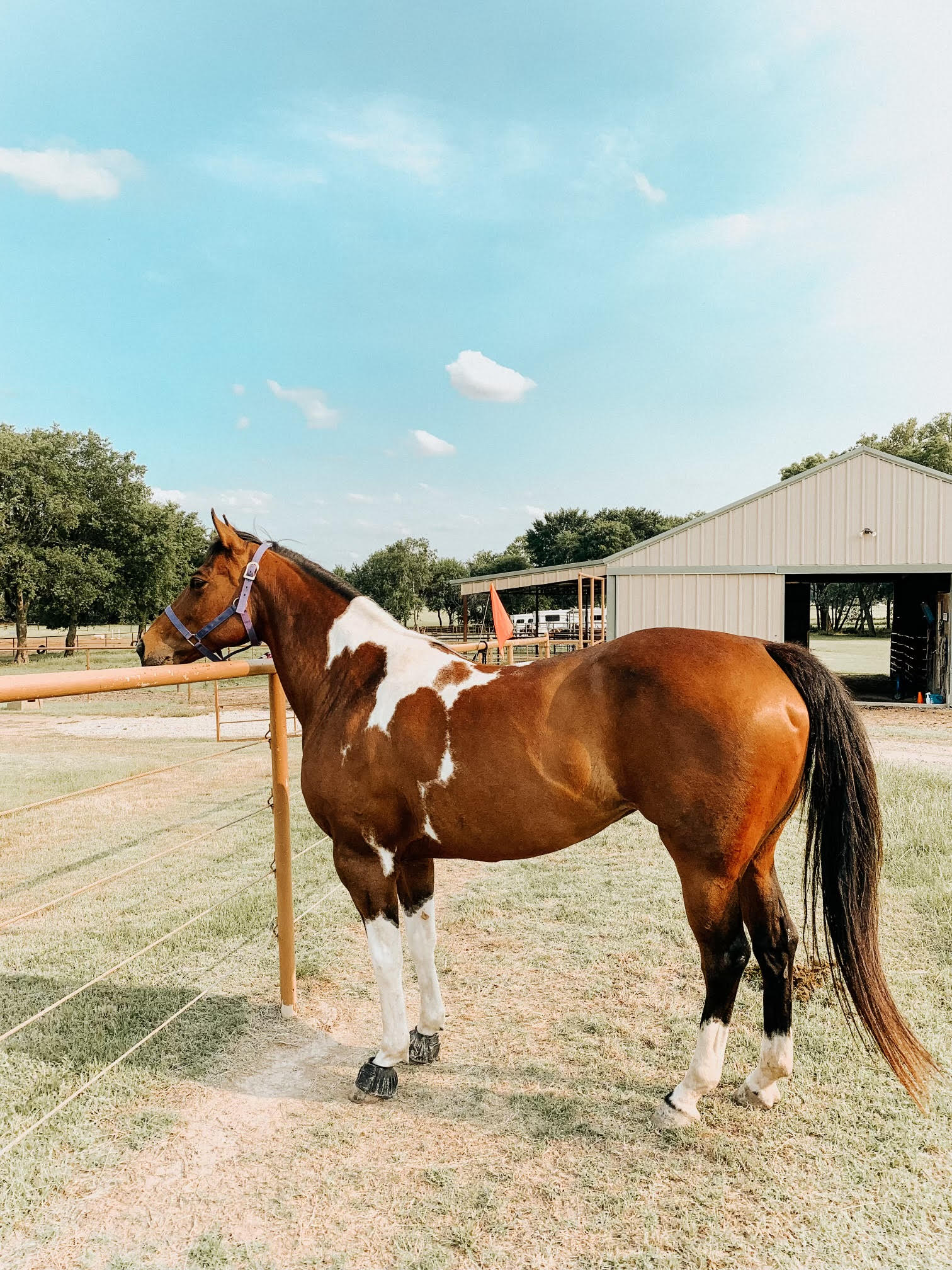
Forage
High-quality forage is a crucial component of your horse’s diet, regardless of their weight.
Forage such as hay or pasture grass provides essential nutrients.
When managing your horse’s weight, it’s essential to ensure that the forage provided is high quality. Overweight horses should have limited access to high-quality forage, while underweight horses should have unlimited access.
High-quality forage can be calorie-dense, and overfeeding can contribute to weight gain.
Underweight horses may struggle to maintain their weight due to low caloric intake. Providing unlimited access to high-quality forage can help increase their caloric intake and aid in weight gain.
It’s important to regularly monitor your horse’s forage intake and adjust it according to their weight and nutritional needs.
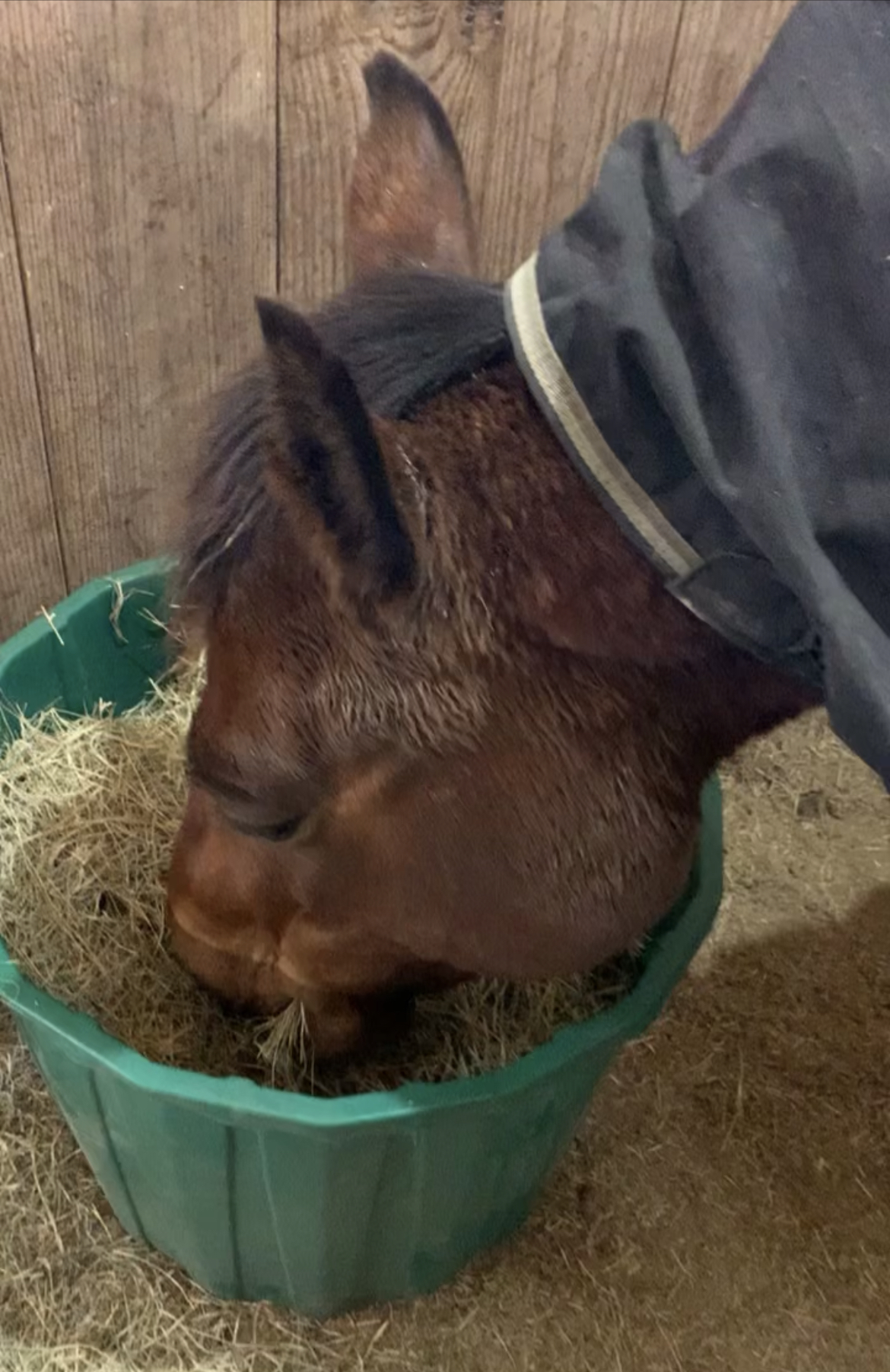
Feeding
Adjusting your horse’s feed quantity and frequency is another strategy for managing their weight effectively.
Overweight horses should have their feed intake reduced gradually. Underweight horses should be fed more frequently and in smaller quantities.
Reducing the amount of feed given to an overweight horse can help them achieve a gradual weight loss, which is safer for their health and well-being.
In contrast, increasing the frequency of feedings for an underweight horse can help increase their caloric intake and aid in weight gain.
It’s important to make any dietary changes slowly and monitor your horse’s weight and overall health closely.
Abrupt changes can cause digestive issues, and it’s important to ensure that your horse receives sufficient nutrition at all times.
A veterinarian or equine nutritionist can help you create a feeding plan to fit your horse’s specific needs.
Always consult with your vet before adjusting your horse’s feed so they can offer advice.
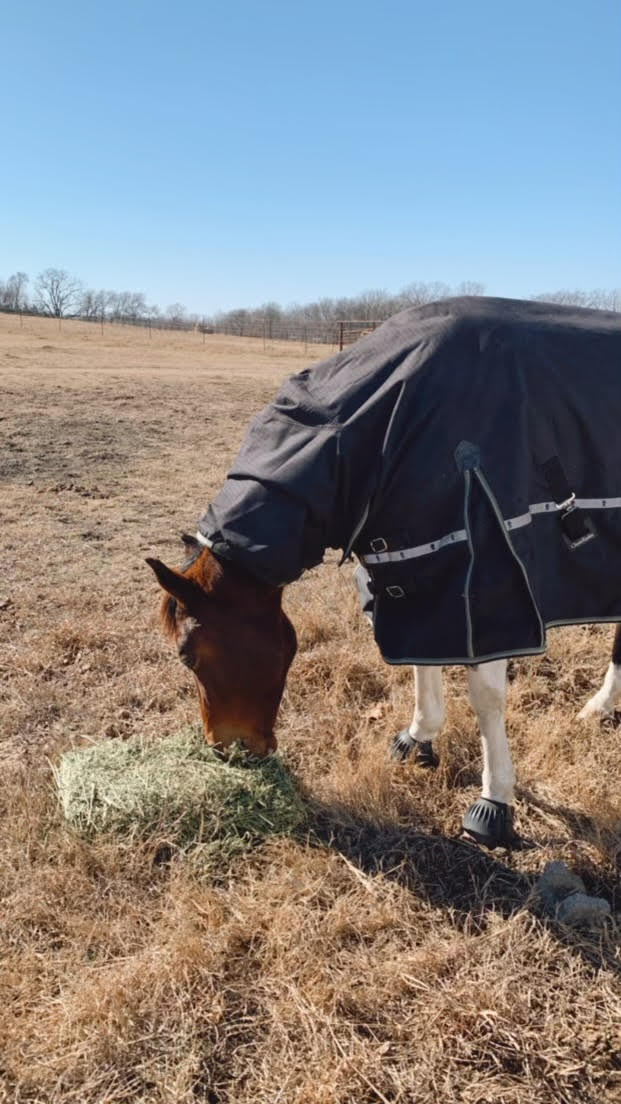
Treats
Monitoring your horse’s treats is an important aspect of managing their weight.
Treats should be limited or eliminated altogether for overweight horses, as they can contribute to weight gain.
For underweight horses, treats can be used to increase their caloric intake, but they should still be monitored closely as they are high in sugar.
Treats don’t offer many nutritional benefits so always be careful how many you feed your horse.
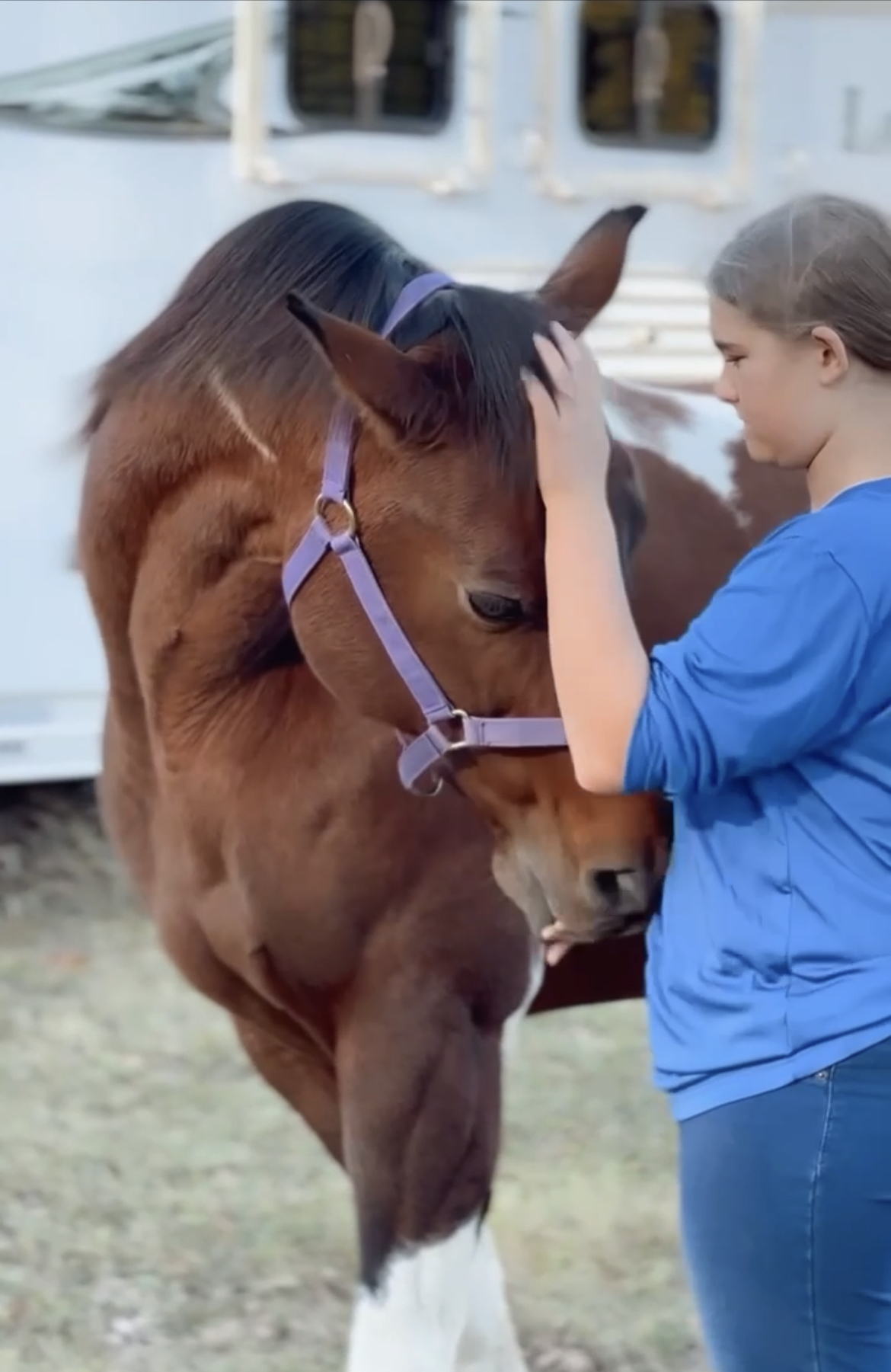
Exercise
Providing regular exercise is an effective way to manage your horse’s weight, regardless of whether they are overweight or underweight.
Exercise helps burn calories, build muscle, and improve overall health and fitness. However, it’s important to match your horse’s exercise routine to their specific needs and fitness level.
Overweight horses may have mobility issues and require a gradual introduction to exercise, such as hand-walking or light riding.
Underweight horses may also require a gradual introduction to exercise to avoid fatigue or injury.
As your horse’s fitness level improves, you can gradually increase the intensity and duration of their exercise routine.
Regular exercise, combined with a balanced diet and other management strategies, can help your horse achieve and maintain an optimal weight and improve their overall health and well-being.
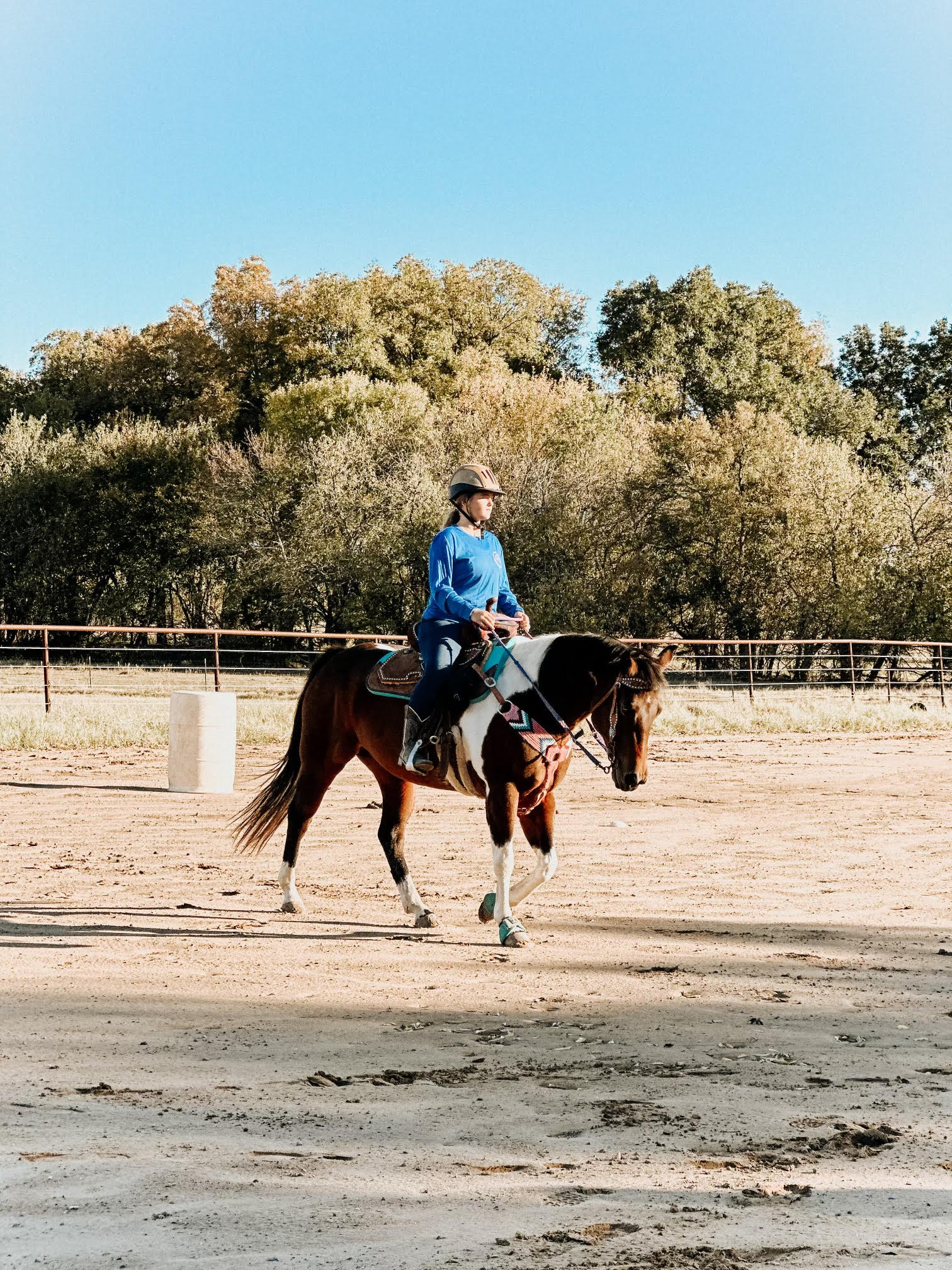
Health Issues
Addressing any dental or health issues is crucial when managing your horse’s weight.
Dental issues such as worn or missing teeth can make it difficult for your horse to chew and digest their food properly, which can contribute to weight loss or malnutrition.
Regular dental check-ups and treatments can help ensure that your horse’s teeth are in good condition and able to chew their food effectively.
Additionally, underlying health issues such as metabolic disorders, parasites, or chronic illnesses can also contribute to weight gain or loss.
If you suspect that your horse has a health issue, consult with your veterinarian to develop a treatment plan.
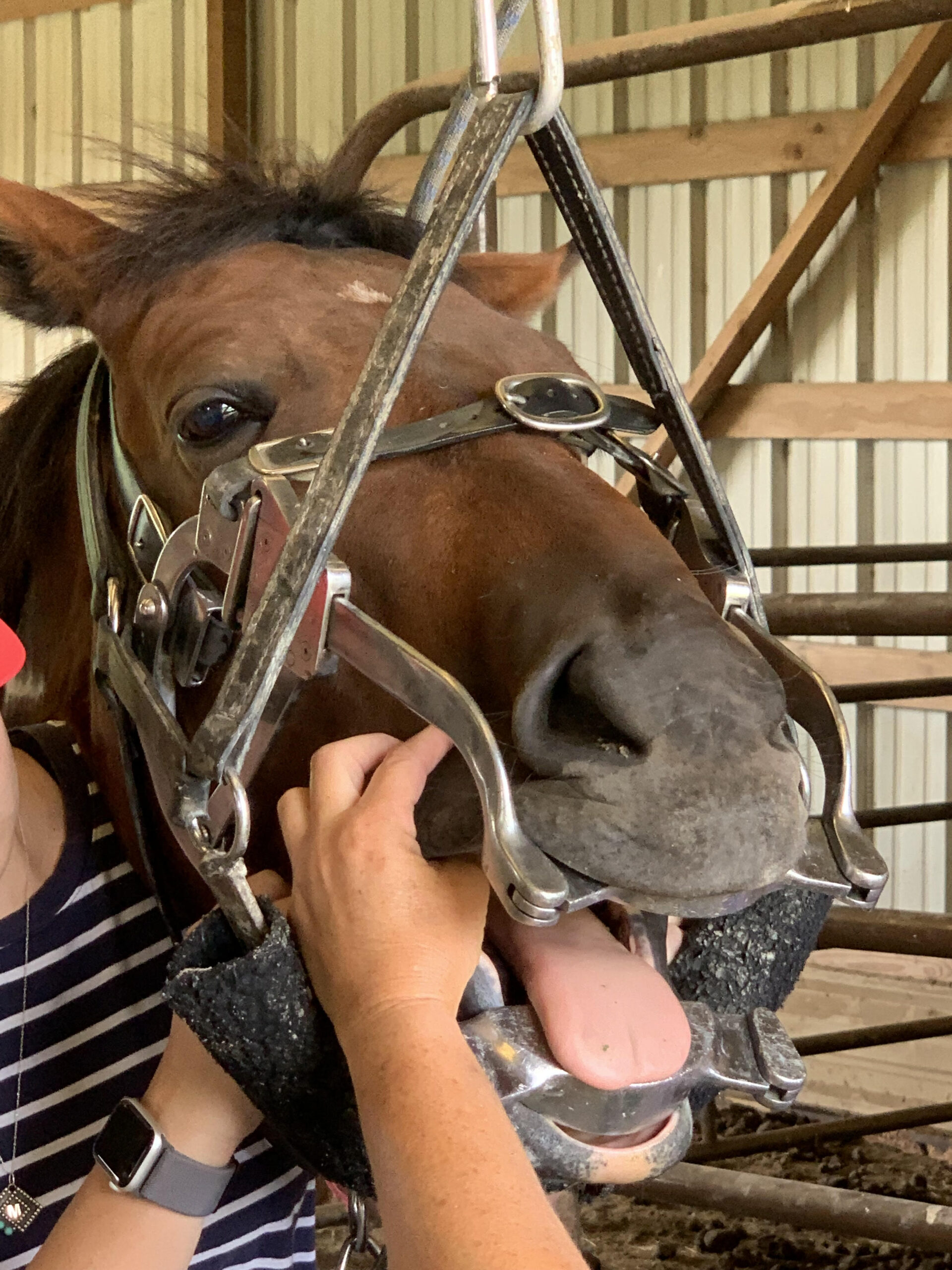
Managing your horse’s weight is essential for their overall health and well-being, and requires a complex approach.
It’s important to personalize your management strategies to your horse’s specific needs, and to make any changes gradually to avoid stress or health issues.
With proper care and management, you can help your horse achieve a healthy weight and improve their overall health and quality of life.
Don’t hesitate to consult with your veterinarian or equine nutritionist for additional guidance and support when managing your horse’s weight.
